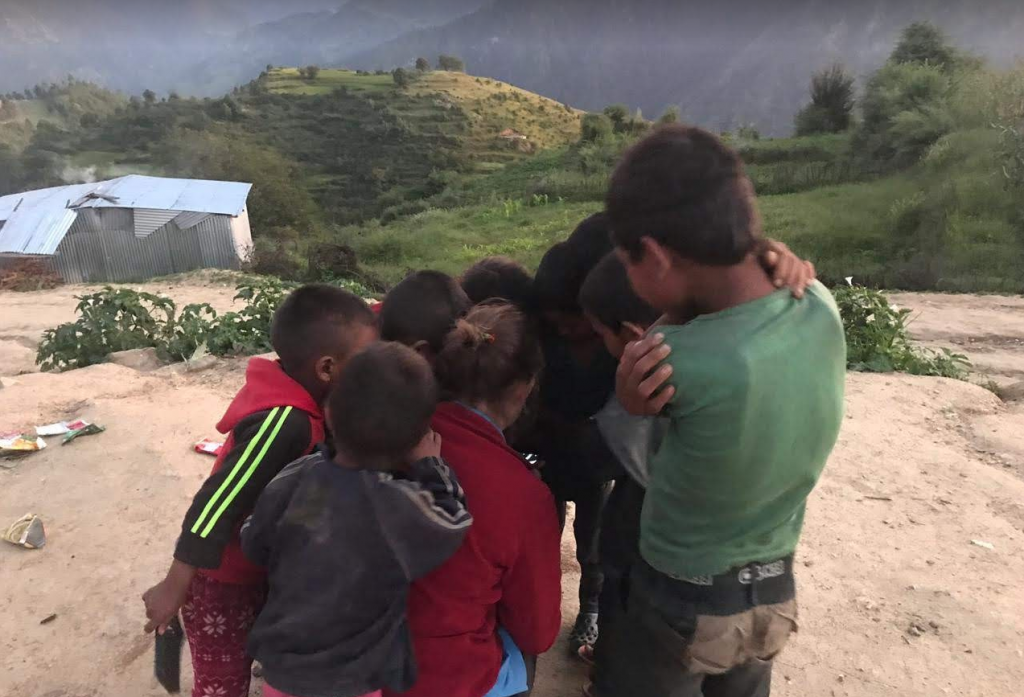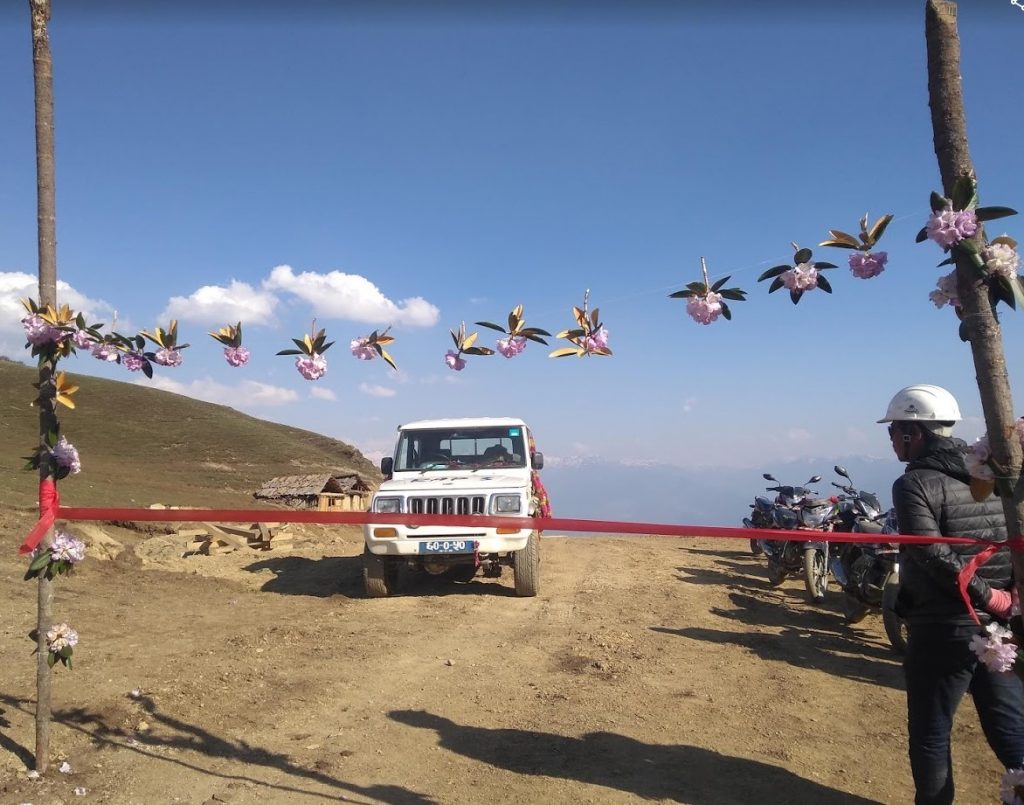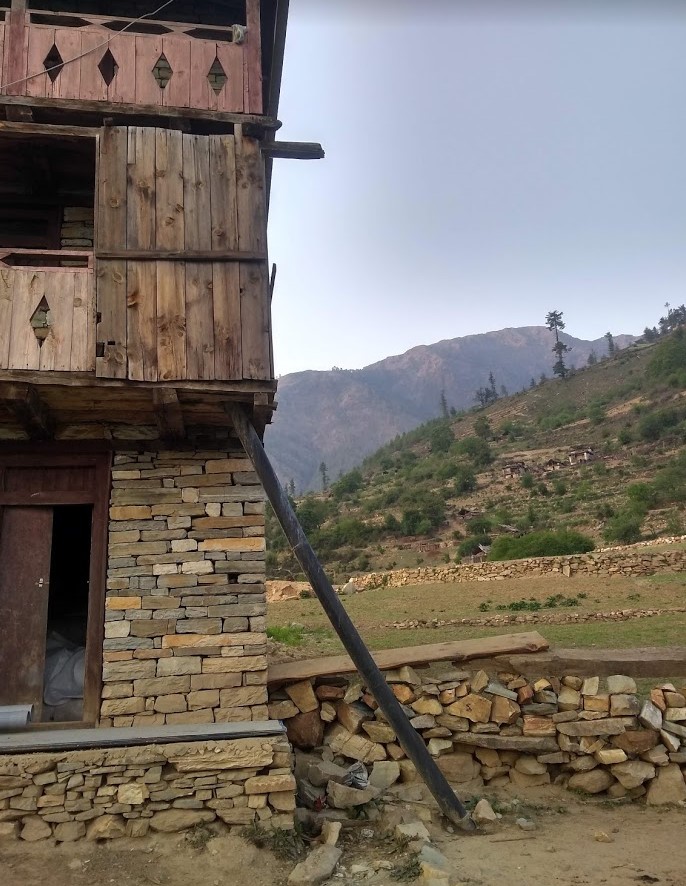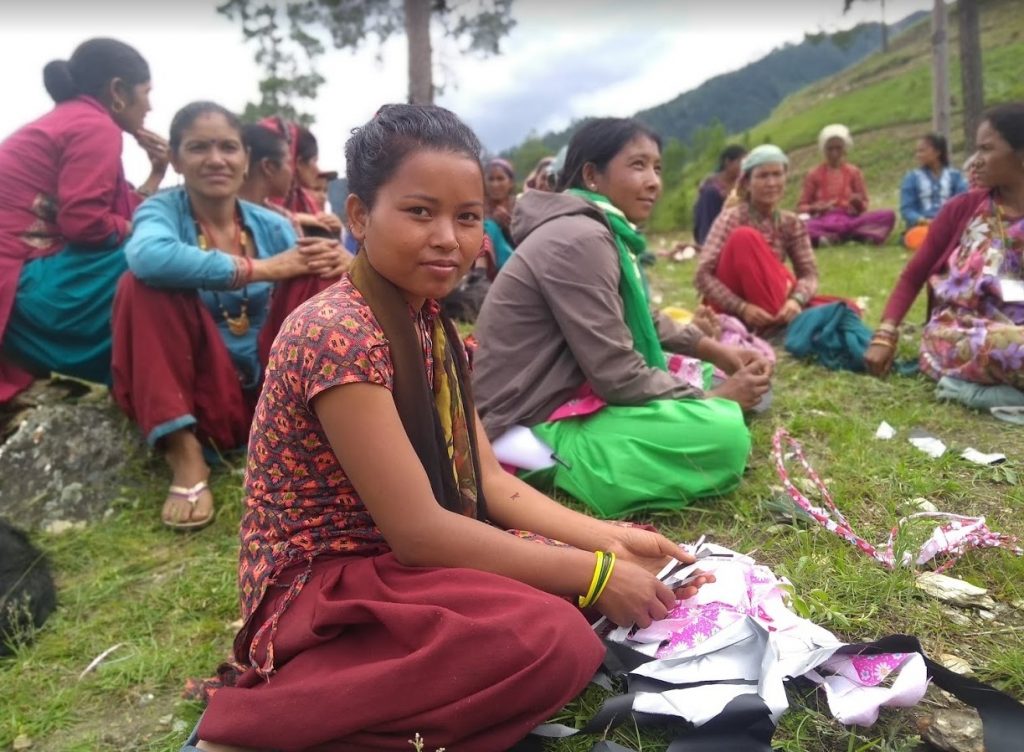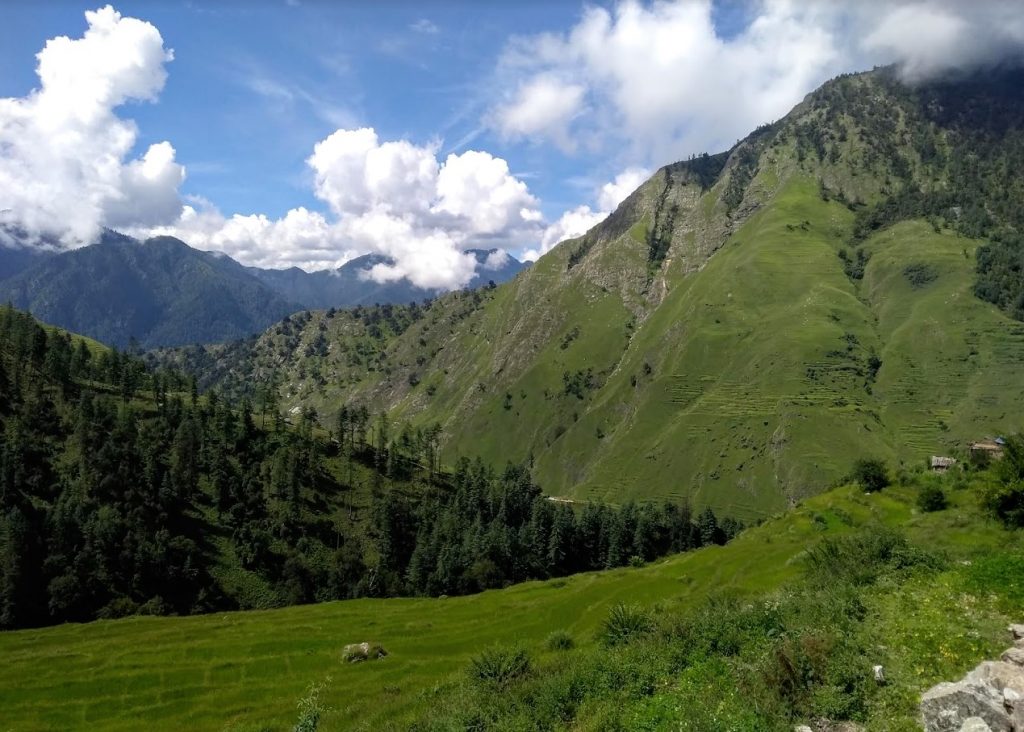Nepal declared open defaecation free country, so the headline proclaimed from The Himalayan Times (https://thehimalayantimes.com/nepal/nepal-declared-open-defaecation-free-country/). My mind instantly turned to a recent memory, while I was at our project site in Humla. I had been playing peek-a-boo with a cute, but snotty nosed, little girl. On previous encounters she had run away crying, my white skin is not a common site in this remote, mountainous north-west corner of Nepal. However, this time she was less scared to see me and was laughing at the game – a game children enjoy the world round it seems. Then, the call for nature took her and she dropped trousers and squatted on the road we are building and had a wee. On 4 December 2017 the district declared itself an open defecation free zone, in that everyone had a toilet in their homes, and, more importantly, used them! Well perhaps that was the intention, but it seems it will take time for everyone to get used to this approach.
Figure 1 – Older kids are less scared of me, especially when they can look at photos of themselves on my camera
I am currently working in rural North West Nepal on a road building project (RAP3 Mugu-Humla Link Road, funded by the UK government , improving the access to the Humla region; which until this project started was not connected to the rest of Nepal by road. I was rather proud to be in the vehicle (a Bolero Jeep, named Muffin – because it’s our construction “mule”) that was the first to cross over into Humla from Mugu (the neighbouring district).
Figure 2 – Muffin the Mule ready to cross over the border
Yet this is a newsletter about water I hear you cry! Well fear not, you can read more about the programme on our website (https://rapnepal.com/). Instead I will focus on the challenge of sanitation while constructing this road.
Firstly, I am sure many of you are used to squat toilets – perhaps not in the UK but in a service station toilet in France perhaps? The hole in the floor, that tests your thigh strength and balance – at least for those of us who have not grown up using them. I am told they are much better for you in terms of pooing – that it better angles for the colon and uses gravity to help you go about your business. And, they are quite convenient for the fact they can be fairly easily constructed. When you think that the majority of material needs to reach these remote areas either on the back of a donkey or a human, you soon see why the western style toilet has not made an appearance. Instead the only heavy item is the “foot plate”, which then connects to a pipe that ends up in a big septic tank (you hope!). Also, not to mention, there’s no mains plumbing to connect up to, instead you flush the toilet with water that is stored in a bucket (collected from nearby streams) in the cubicle. The same bucket of water that people tend to use to wash themselves clean, toilet paper is not common. This is a thought I try not to think about as I dip the scoop in and try not to get my hand in the water – I personally still use toilet paper, but I do wonder what effect that has in terms of the tank.
Figure 3 – The Ward Chairman’s house, with an exceptionally long drain. It makes an “interesting” echoing noise when you use it…
Another big challenge, especially for our project where 50% of our Road Building Groups are women, is menstrual hygiene. With limited water or access to suitable sanitary products, managing periods in this remote area is tough. There was also a traditional practice of Chhaupadi where menstruating women are considered impure and so are banned from the house and are required to live in cattle shed. This is now illegal in Nepal, but the taboo has impacts. We only pay our labour for work they have done; if they are unable to come to work then we do not pay them. Therefore, to encourage women to come to work even when menstruating, we provided workshops to learn how to make reusable sanitary pads. This we hope will encourage women to feel they can continue working, even when menstruating.
Figure 4 – Our Road Building Group members taking part in a reusable sanitary pad making workshop
Perhaps one day the region will be truly Open Defecation Free (ODF), but for now there are many challenges – that disproportionately impact women – that need to be addressed such as the remoteness and the regular access to a water supply. Until then, this part of the world remains beautiful, and a joy to visit but a challenging place to live.

